As the 16th President of the United States of America, Abraham Lincoln wrote many important letters, during his presidency from March 1861 until his assassination in April 1865. His letters covering a wide range from policy matters to condolence letters constitute an integral part of the American history. His writing style is amazingly impressive and his personal secretary John G. Nicolay wrote, ‘How a person growing up without the advantage of schools and books could have acquired the art which enabled him to write the Gettysburg address and the second inaugural’.
1. Letter to Horace Greeley
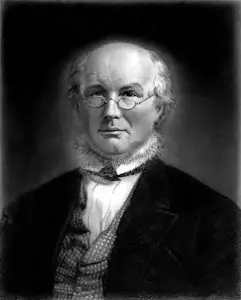
Horace Greeley, the editor of the New York Tribune, wrote an editorial, titled The Prayer of Twenty Millions, addressed to Abraham Lincoln, during the Civil war. Lincoln utilized it for preparing the public mindset in favor of his policy regarding the Emancipation Proclamation, as reflected in the following parts of his letter written on August 22, 1862.
Hon. Horace Greeley
Dear Sir, …I would save the Union… If I could save the Union without freeing any slave I would do it, and if I could save it by freeing all the slaves I would do it …I shall do less whenever I shall believe what I am doing hurts the cause, and I shall do more whenever I shall believe doing more will help the cause…I have here stated my purpose according to my view of official duty; and I intend no modification of my oft-expressed personal wish that all men everywhere could be free.
Yours,
A. Lincoln.
2. Letter to Grace Bedell
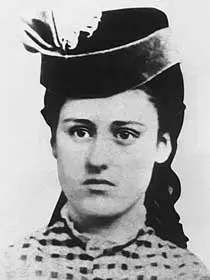
On October 15, 1860 an eleven year old little girl wrote a letter to Abraham Lincoln. Within it she wrote ‘if you will let your whiskers grow I will try and get the rest of them to vote for you would look a great deal better for your face is so thin…’. Lincoln in response wrote on October 19, 1860’
Miss. Grace Bedell
‘My dear little Miss, Your very agreeable letter of the 15th is received…As to the whiskers, having never worn any, do you not think people would call it a piece of silly affection if I were to begin it now? Your very sincere well-wisher,’
Lincoln
3. Letter to Mrs. Bixby
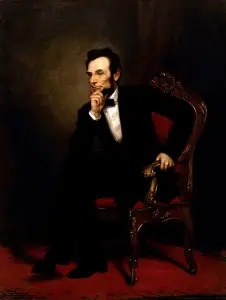
On November 21, 1864 Lincoln wrote a condolence letter to Mrs. Bixy who lost her sons in civil war. Some scholars are skeptical about the authenticity of the letter as different versions were in circulation. He wrote;
‘Dear Madam,
…I feel how weak and fruitless must be any word of mine which should attempt to beguile you from the grief of a loss so overwhelming. But I cannot refrain from tendering you the consolation that may be found in the thanks of the Republic they died to save….I pray that our Heavenly Father may assuage the anguish of your bereavement,.. to have laid so costly a sacrifice upon the altar of freedom. Yours, very sincerely and respectfully,’
Lincoln
4. Letter to his son’s Head Master
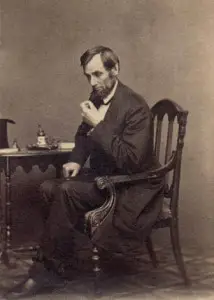
Whereas most of the Lincoln letters reflect typical American mindset, the letter written by him to his son’s School master is reflective of a global mindset. Anywhere in the world, a father would want very much the same, as wished by Lincoln for his son. What he wrote to his son’s Head Master includes the following but does not exclude many other wishes; ‘ Respected Teacher, It will take time, I know; but teach him, if you can, …to learn to lose and also to enjoy winning….Steer him away from envy, if you can….Teach him, if you can, the wonder of books.. … teach him it is far more honorable to fail than to cheat… Teach him to be gentle with gentle people and tough with the tough.
5. Letter to Henry L. Pierce and others
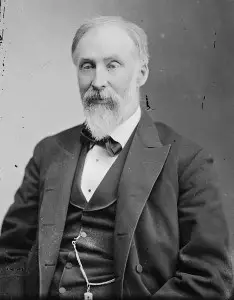
Addressed to Messrs. Henry L. Pierce & others, Lincoln wrote a pithy letter, probably intended to be read to the audience at the festival. ‘Gentlemen, Your kind note inviting me to attend a Festival in Boston, on the 13th. Inst. in honor of the birth-day of Thomas Jefferson was duly received. My engagements are such that I cannot attend… Republicans, on the contrary, are for both the man and the dollar; but in cases of conflict, the man before the dollar…All honor to Jefferson–to the man who, in the concrete pressure of a struggle for national independence by a single people, had the coolness, forecast … an abstract truth, applicable to all men and all times. Your obedient Servant,’
A. Lincoln”
6. Letter to Albert G. Hodges
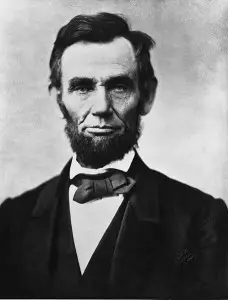
As desired by Hodges; the editor of the Frankfort Commonwealth, Lincoln had no hesitation in writing, what he expressed verbally. On April l4,1864, he wrote a letter to A.G.Hodges, containing ‘My dear Sir: You ask me to put in writing the substance of what I verbally said the other day, in your presence, to Governor Bramlette and Senator Dixon. It was about as follows: “I am naturally anti-slavery. If slavery is not wrong, nothing is wrong. I cannot remember when I did not so think, and feel. … By general law life and limb must be protected; yet often a limb must be amputated to save a life; but a life is never wisely given to save a limb… confess plainly that events have controlled me.
7. Letter to Erastus Corning and Others
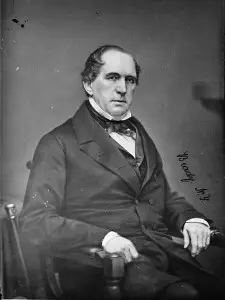
In the Letter written to Erastus Corning and Others, Lincoln made it clear that habeas corpus was not suspended on account of some whimsical approach. He explained it in such a convincing manner that the editor of New York Tribune, Horace Greely commented ‘the most masterly document that ever came from his pen. I doubt that Webster could have done better’ The letter contained ‘Ours is a case of Rebellion — so called by the resolutions before me — in fact, a clear, flagrant, and gigantic case of Rebellion; and the provision of the constitution that “The privilege of the writ of Habeas Corpus shall not be suspended, unless when in cases of Rebellion or Invasion, the public Safety may require it”
8. Letter to Edward Everett
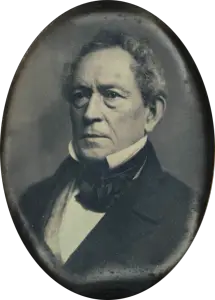
During the dedication of the soldiers’ cemetery in Gettysburg, Edward Everett and Abraham Lincoln shared the speakers’ platform. Everett appreciated Lincoln’s ‘Eloquent simplicity and appropriateness’ and wrote to him “I should be glad, if I could flatter myself that I came as near to the central idea of the occasion, in two hours, as you did in two minutes’. Lincoln wrote in response ‘Hon. Edward Everett. My dear Sir: Your kind note of to-day is received. In our respective parts yesterday, you could not have been excused to make a short address, or I a long one. I am pleased to know that, in your judgment, the little I did say was not entirely a failure.’
9. Letter to Alexander Stephens
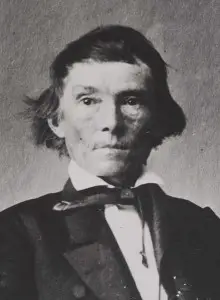
In his letter, written on December 22, 1860, to Alexander Stephen, Lincoln assured him of his noninterference in his home state of Georgia, saying, without changing his stance on slavery. He wrote ‘Do the people of the South really entertain fears that a Republican administration would, directly or indirectly, interfere with their slaves, or with them, about their slaves? If they do, I wish to assure you… that there is no cause for such fears… You think slavery is right and should be extended; while we think slavery is wrong and ought to be restricted. … It certainly is the only substantial difference between us. Yours very truly’
10. Letter to General Ulysses S. Grant
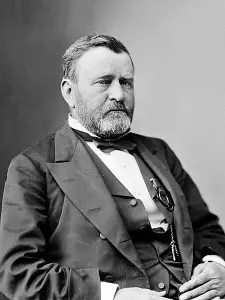
On the successful capture of Vicksburg, Mississippi, on July 4, 1863, Lincoln, not only congratulated Major General Grant on the victory, but also openly confessed that he was strategically wrong, while Grant was right. Lincoln wrote ‘Major General Grant, My dear General, I do not remember that you and I ever met personally. I write this now as a grateful acknowledgment for the almost inestimable service you have done the country… when you turned Northward East of the Big Black; I feared it was a mistake. I now wish to make the personal acknowledgment that you were right, and I was wrong. Yours very truly.’
Lincoln
Conclusion
Just as the light and dark dots, arranged in a particular order, form the image of a person, the words of a letter seen in their writing perspective, form the personality of someone. There is perhaps nothing more reflective of a personality than someone’s letters. They reveal what is there in the uppermost strata of someone’s mind and what are the innermost feelings of the writer. Abraham Lincoln spoke out his mind to the general public and used his letters as a platform to mold the public opinion as he desired. His letters reflect, not only Lincoln’s own personality, but they are truly reflective of the American mind and personality.
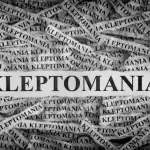


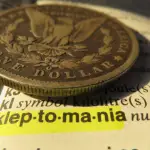




July 23, 2019 6:21 pm
Hello: I have a letter which appears to have been written and signed by Abraham Lincoln. It is The Gettysburg Address. Dated November 19th, 1863. I do not have the letter authorized as yet.
I am a resident of Canada. If you could shed some light on this matter, I would appreciate it.